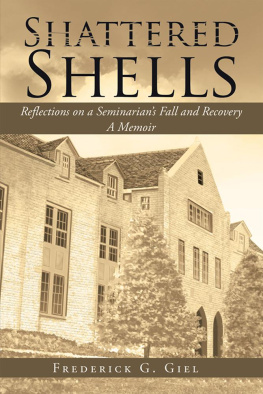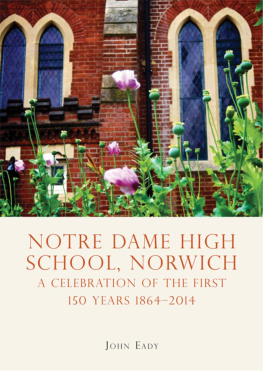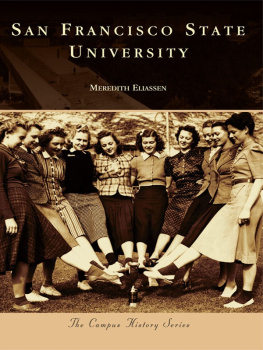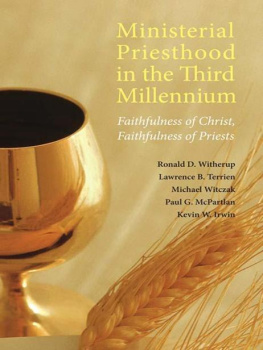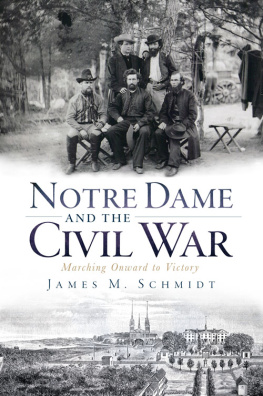SHATTERED
SHELLS
Reflections on a Seminarians Fall and Recovery
A Me moir
FREDERICK G. GIEL
Copyright 2017 by Frederick G. Giel.
Library of Congress Control Number: 2016920932
ISBN: Hardcover 978-1-5245-7068-2
Softcover 978-1-5245-7067-5
eBook 978-1-5245-7066-8
All rights reserved. No part of this book may be reproduced or transmitted
in any form or by any means, electronic or mechanical, including photocopying, recording, or by any information storage and retrieval system,
without permission in writing from the copyright owner.
This is a work of nonfiction. Some names and identifying characteristics have been changed to protect the privacy and anonymity of the individuals involved. In some instances, composite characters have been created and utilized. Where necessary, timelines have been compressed to maintain narrative flow. Finally, the conversations set forth in this book are derived from the authors recollections, but they are not written to represent word-for-word transcripts.
cover art by: Dwight Nacaytuna
Rev. date: 02/20/2017
Xlibris
1-888-795-4274
www.Xlibris.com
741977
CONTENTS
In memor y of
Rev. William B. Simmons, C .S.C.
1927 2011
CHAPTER 1
FIRST NIGHT
Alone in the pew, I knelt in silence, grab-bagging prayers to pass the time. My mind wandered to the vacant seats all about me. Were the others late, or was I early? The benediction service was scheduled for ten oclock sharp. Tardiness wouldnt be tolerated, especially on the first night. No excuses. Be there or be gone.
I glanced down, nervously fidgeting with my new watch, an inexpensive Timex, which came my way as a final send-off gift. I accidentally jammed it against a wall earlier. Scratched, bruised, or busted? I wiggled my wrist and flicked the plastic face with my index finger. The second hand was chugging along, and against my ear, the ticking sounded strong. Satisfied, I dropped my arm and pulled down the sleeve of my bath robe.
Still, little was going on around me. Frustrated at the empty minutes, I lifted my head, glaring in frustration at the open seats. I was dead tired, but I knew the religious service wasnt going to start with the laggards milling around in the corr idor.
It was nighttime, and the stained-glass window to my left gave no hint of outside light. Growing up, daytime was always kinder. Even the scariest things seemed softer and tamer in the light of day. I heaved a deep sigh, promising myself it would be better in the mor ning.
In time, I swung my head sideways and eventually turned around. In the back of the chapel, I spotted a priest next to the ancient wooden doors, herding the last of the stragglers to their pews. Meanwhile, I waited in the eerie silence, my eyes darting madly about me, taking in the moment. Memorizing it. Trying to enjo y it.
When the trickle of bodies was exhausted, the doors were slammed shut, the sudden clamor shaking the chapel. I cracked up, but a stern glare from an upperclassman told me to st ifle.
Then in a blink, the deafening sound of the church organ swept away the uncomfortable stillness. I glanced at my watch once again. Right on time, just like they prom ised.
The wooden planks beneath our feet belched a melodic creak as we lifted ourselves from the pews, joining our voices in song. Awash in a soupy blend of Latin hymns and sweet-smelling incense, we rocked slightly on our slipper-covered heels as the priest and servers started the somber procession up the aisle. Finally, the begin ning.
It was my first night as a seminarian at the close of a busy day, a day that began at home, a mile or so away. Ever the early bird, my dad was rooting about my bedroom at the crack of dawn, collecting my personal belongings from the modest pile at the foot of my bed. While the rest of us took turns in the bathroom, Dad loaded the suitcase and boxes into the trunk of the family Studebaker for the short drive to campus. After lunch, something cold and quick, we were on our way.
Upon our arrival at the seminary, we were escorted to the basement locker room of the large, three-story building by a cheery junior dressed in a coat and tie. When I noticed he sported eyeglasses even thicker than the blind-as-a-bat spectacles perched on my face, I felt oddly comfo rted.
So do you go by Fred or Freddie ? he asked as we descended the st airs.
I looked at my parents, but they fell silent, leaving the decision to me. I had always been their Freddie , but I was a grown-up now, right? Not exactly, but a fourteen-year-old moving away from home ought to have naming ri ghts.
Umm, its just plain Fred , I finally responded in a voice pushed deep. My mother gave a slight nod, and knowing my dad, he would have wiped away a tear.
My personal effects were meticulously arranged by my mother on the lockers wooden shelves, while my family and I looked on in amusement. Mom was on a roll, and she didnt need our clumsy hands getting in her way. Thanks to a stack of soapy paper towels and considerable elbow grease, the shelves were surgically scrubbed before being covered with pieces of butcher paper, which she carefully sized, cut, and folded. My underwear and socks would never suffer the indignity of touching bare wood.
As the activity continued in front of my narrow locker, we were increasingly surrounded by other boys and their families in the crowded locker room as they stacked clothing onto their shelves. Their dusty, paperless she lves.
The tour of the building took us to the communal shower rooms, communal restrooms, communal study halls, and communal dorm rooms. The word communal is derived from community , and the latter comes from the Latin words munus , which means the gift, and cum , which means together. The word, as a whole, means to give among one another. On the surface, the term is generous and warm. But in our new lives, it was the scalpel that would quickly slice away our individuality and pri vacy.
Dorothy was right, Toto. We arent in Kansas any more!
After we knew our way around the enormous brick building, there was anxious chatter in the hallways and the parking lot while the farewell ritual got under way. I was aware good-byes were imminent, but I wasnt ready to let go of my parents, sisters, or older brother. We loitered longer than most, even walking down to the lake for a final snapshot. Its the last time well be together as a family, my mom mused. I winced, wondering how I missed my obit uary.
The moment of parting arrived, and just like that, they were on their way back home. As the Studebaker drove down the hill, I looked away so my folks couldnt see the tears. After that, I busied myself, taking in the afternoons orientation activities and playing the extrovert I wa snt.
I was a member of the freshman class at Holy Cross Seminary, a cloistered, all-male high school resting on a hill, overlooking one of the lakes on the University of Notre Dame campus. It was Sunday, September 6, 1964. The boarding school would be my home, and the priests and fellow seminarians surrounding me in the crowded chapel were my family. I didnt know all the guys yet, but wed live, learn, work, and pray together, preparing ourselves for the priesthood. No sense expecting support from our parents because we were swimming alone. The fact is, for most of the seminarians, there would be no personal contact with family members until Thanksgiving week.
We shrugged it off, knowing that estrangement from our families was necessary. Our parents, siblings, aunts, uncles, cousins, and grandparents were vestiges of the past; the chapel and the people surrounding us were the new pre sent.
Growing up, the last event before bed was a visit to the kitchen for a cookie and a glass of milk. No more. The religious service on the first night was the new norm. Prayer followed by sleep. Every night. Always in the chapel, where we would be wrapped tightly in our pajamas and bathrobes for the final act of the day.
Next page
